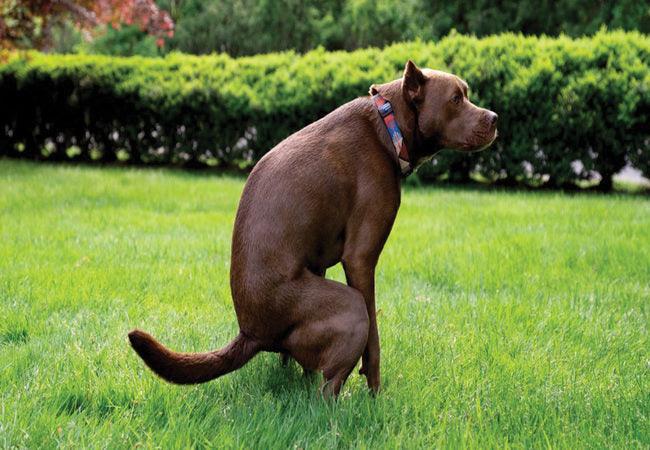2025 Vet Guide: Mucus in Dog Poop – Causes, When to Worry & What to Do 🐶💩

In this article
2025 Vet Guide: Mucus in Dog Poop – Causes, When to Worry & What to Do 🐶
By Dr. Duncan Houston BVSc
Mucus in your dog’s poop can be slimy or jelly-like. While small amounts are normal, larger volumes, frequent episodes, or any red flags warrant attention. Here’s your trusted guide to understanding and addressing it—without panic! 👨⚕️
🔍 1. What Is Mucus & When Is It Normal?
Tiny traces of mucus are natural: they coat feces to ease passing and signal mild intestinal irritation. Occasional thin film, especially during minor GI upset, isn’t alarming if your dog is well otherwise.
⚠️ 2. When to Worry
- Large amounts of mucus—coating, pooling, or dripping
- Mucus accompanied by diarrhea, blood, vomiting, lethargy, or decreased appetite
- Persistent symptoms lasting over 24–48 hrs without improvement
🦠 3. Common Causes Explained
- Dietary changes or indiscretions: Sudden food switches or trash-eating can cause colitis and mucus
- Parasites: Worms (round, whip), Giardia may lead to mucus-rich diarrhea
- Bacterial/viral infections: Salmonella, E. coli, others cause inflammation, mucus, and GI signs
- Inflammatory Bowel Disease (IBD)/Colitis: Chronic gut irritation often produces frequent mucus and soft stools
- Stress-induced irritable bowel (IBS): Boarding, moving, anxiety can cause mucus-streaked diarrhea
- Allergies or intolerances: Food sensitivities trigger colonic irritation & mucus
- Less commonly: Cancer or GI blockages requiring imaging and biopsy
🩺 4. What Your Vet Will Do
- Review history & stool sample to check mucus, blood, parasites
- Perform bloodwork to exclude systemic disease
- Use imaging (X-rays, ultrasound) if obstruction or mass suspected
- Test for chronic IBD or food allergies via diet trials or biopsy
🛠️ 5. Treatment by Cause
- Bland diet & probiotics: Chicken/rice/pumpkin routine and probiotics to soothe mild upset
- Parasite deworming: Regular prevention and tailored treatment
- Infections: Antibiotics or supportive care
- IBD/colitis: Prescription diets, immunomodulatory drugs
- Stress-relief: Calming routines, consistency, pheromones
- Allergy management: Elimination diets or novel-protein formulas
- GI mass: Surgical removal or oncology referral
🏡 6. Home Care & Prevention
- Slowly transition new foods over 5–7 days
- Avoid table scraps and trash ingestion
- Give monthly parasite preventatives and annual fecal checks
- Use probiotics & pumpkin for gut support
- Reduce stress: during travel, changes, or boarding
📱 7. Tools to Keep You On Track 🧰
- Ask A Vet: Remote triage for mucus, diarrhea, and red flags
- Woopf: Log stool consistency, diet changes, symptoms, vet visits
- Purrz: Monitor episodes, triggers, and recovery trends to inform treatment
📚 FAQ
Q: A little mucus once—normal?
Yes, especially with minimal mucus and no other signs. Monitor 24–48 hrs before escalating care.
Q: My dog has mucus and blood—urgent?
Yes—blood or frequent mucus streaking with any illness signs means a vet visit ASAP.
Q: Are probiotics helpful? Safe?
Absolutely—they support gut flora and recovery. Use vet‑recommended strains.
💬 Owner Insight
> “Our lab had mucus after raiding the trash. We switched to pumpkin/probiotics and it normalized in two days.”
🏁 Final Thoughts from Dr Houston
Mucus in dog poop is often benign—but persistence, volume, or blood signals trouble. With mindful monitoring, thoughtful diet, and parasite control, and vet guidance when needed, your pup’s gut can heal quickly. Plus, with Ask A Vet, Woopf, and Purrz, you're fully supported from concern to comfort throughout 2025 and beyond. 💙🐾
Download the Ask A Vet app for expert support, early recovery planning, and symptom tracking. 📱
AskAVet.com – Helping dogs bounce back, one stool at a time.






